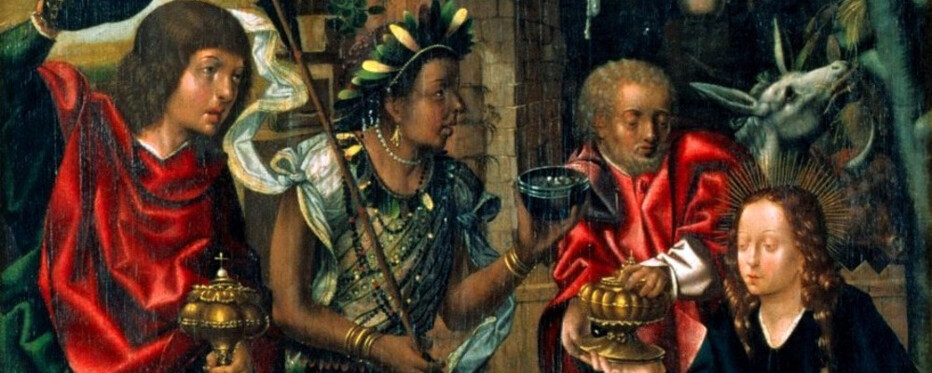The visit of the Magi
Three Kings' Day celebrates that Magi from the east came to Bethlehem in search of Jesus. According to an old Nordic custom Christmas lasts until Three Kings' Day on January 6. January 6 is no longer a holiday in Denmark. Instead we celebrate the visit of the Magi on the first Sunday after New Year and we call this Sunday helligtrekongers søndag (meaning: the Sunday of the Three Kings). One particular hymn is always sung at the church service: Dejlig er den himmel blå. It relates the story of the Magi who followed Jesus' star all the way from the east to Bethlehem.
Epiphany
Three Kings' Day is also called Epiphany. Epiphanaia is a Greek word meaning revelation or appearance. It underscores the importance of the day as the day when Jesus was revealed as the saviour of the world. Some churches celebrate Christmas on January 6, for example the Greek Orthodox Church.
A green season in the church year
The season of Epiphany lasts from two to six Sundays depending on which date Easter falls. It begins on the first Sunday after New Year and ends three Sundays before Shrovetide. The liturgical colour of the season of Epiphany is green; it symbolises hope and growth. The transition from the season of Epiphany to the season of Lent in the church year is made by two Sundays called respectively Septuagesima and Sexagesima, the ninth and the eighth Sunday before Easter. Most often green remains the liturgical colour on these Sundays. Alternatively, purple is used, as it is the colour of the season of Lent which follows.



